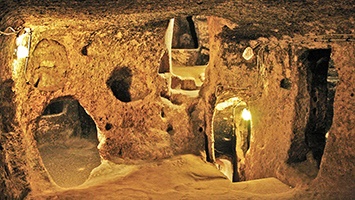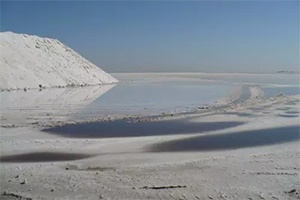Mahan Air Airline, Arrival at Tehran Airport
- W5082 (International) Kuala lumpur / Tehran
Departure: 23:30
Arrival: 03:30 (+1)
- W5083 (International) Tehran / Kuala lumpur
Departure: 21:55
Arrival: 10:20 (+1)
Day 1: Kuala Lumpur/Tehran
[Departure – 8hr00min Flight] Assemble at KLIA, 3 hours prior to flight for flight check-in to Tehran
Day 2: Tehran
[Arrival] Meet and greet at the IKA airport with our professional tour guide then, transfer to the Hotel for brief refreshing then start the first day tour, after check in Hotel then you can visit:
- Azadi Tower
Formerly known as the Shahyad Tower and is one of the landmarks of Tehran. It is about 148 ft. tall and is completely clad in cut marble.
- Sa’dabad Palace Complex
The Tomb of Hafez and its associated memorial hall, the Hāfezieh, are two memorial structures erected in the northern edge of Shiraz, Iran, in memory of the celebrated Persian poet Hafez.
- Shrine of Imamzadeh Saleh
One of Tehran’s most attractive shrines, Imamzadeh Saleh provides a photogenic focus to Tajrish Sq with its twin minarets and dome covered in beautiful patterned turquoise tiles: it looks especially stunning towards sunset.
- Tajrish Bazaar
When you come to classic Iranian shopping experiences, browsing the food stalls at this photogenic bazaar in upmarket Tajrish pretty much nails it. It’s ideal for ingredients for Iranian cooking, including all kinds of nuts, dates, spices (such as saffron) and tea. You can also pick up a pretty teapot or some other souvenir while you’re at it.
- Nature Bridge
The Tabi’at Bridge or Nature Bridge, is the largest pedestrian overpass built in Tehran, Iran. The 270-metre bridge connects two public parks—Taleghani Park and Abo-Atash Park—by spanning Modarres Expressway, one of the main highways in northern Tehran.
O/N Tehran Day 3: Tehran-Mahallat
[3 h 15 min (289 km)] A full day Tehran sightseeing starts with Golestan Palace:
- Golestan Palace
The glories and excesses of the Qajar rulers are played out across this complex of grand buildings decorated with beautifully painted tiles and set around an elegant garden that's worth visiting in its own right (UNESCO).
- Grand Bazaar
The maze of bustling alleys and the bazaaris (shopkeepers) that fill them make this a fascinating, if somewhat daunting, a place to explore. Despite being known as the Grand Bazaar, most of the architecture is less than 200 years old and pedestrian, although there are some gems to be found.
- Carpet Museum
Carpet-weaving is undoubtedly one of the most distinguished manifestations of Iranian culture and art, dating back to the Bronze Age, but as the materials used in carpets including wool and cotton, decay into dust during the time, archaeologists couldn't make any special discovery during the archaeological excavations.
In the afternoon we will head to Mahallat, the city of beautiful flowers to get hot water spa.
- Mahallat Spa Waters
The boiling spring (spa water) of Mahallat on the east-north of the town is considered as one of the most important mineral waters of the country. The water is an effective and strong cure for many diseases such as gout, hepatic, biliary, nephric, digestive, dermal, etc. There are both public pools and private baths for guests and travellers. Mahallat’s Guest House and several hotels serve ever all visitors in spring and summer each year. Every September the city holds a flower festival. In ancient times it was an important location for Zoroastrianism.
O/N Mahallat Day 4: Mahallat - Isfahan
[2 h 30 min (208 km)] Today we have a half day city Tour in Mahallat then we move toward Isfahan.
- Mahallat County
In ancient times it was an important location for Zoroastrianism. The city is one of the major producers and exporters of flowers in Iran. Every September the city holds a flower festival. In addition, the area surrounding the city is rich with travertine deposits.
- Si-o-Se Pol Bridge
The Allah Verdi Khan Bridge, popularly known as Si-o-Se Pol, is one of the eleven bridges in Isfahan, Iran.
- Khajoo Bridge
It is a bridge in the province of Isfahan, Iran, which has been described as the finest in the province. It was built by the Persian Safavid king, Shah Abbas II around 1650, on the foundations of an older bridge.
O/N Isfahan Day 5: Isfahan – Matinabad
[2 h 5 min (166 km)] A full Day Isfahan tour, one of the most historical cities of Iran with beautiful Islamic architecture. Due to too many places to visit, Iranian call Isfahan as “Half of the World”.
- Chehel Sotoun Palace
Chehel Sotoun is a pavilion in the middle of a park at the far end of a long pool, in Isfahan, Iran, built by Shah Abbas II to be used for his entertainment and receptions.
- Naqsh-e Jahan Square
Naqsh-e Jahan Square, is a square situated at the centre of Isfahan city, Iran. Constructed between 1598 and 1629, it is now an important historical site, and one of UNESCO’s World Heritage Sites. It is 160 metres wide by 560 metres long.
- Imam Mosque
The Shah Mosque, also known as Royal Mosque or Imam Mosque after the Iranian revolution, is a mosque in Isfahan, Iran, standing in south side of Naghsh-e Jahan Square. Built during the Safavid Empire, ordered by Abbas I of Persia.
- Aali Qapoo Palace
Built at the very end of the 16th century as a residence for Shah Abbas I, this six-storey palace also served as a monumental gateway to the royal palaces that lay in the parklands beyond (Aali Qapu means ‘Gate of Ali’). Named after Abbas ’hero, Imam Ali, it was built to make an impression, and at six stores and 38m tall, with its impressive elevated terrace featuring 18 slender columns, it dominates one side of Naqsh-e Jahan (Imam) Square.
- Sheikh Lotf Allah Mosque
Sheikh Lotfollah Mosque is one of the architectural masterpieces of Iranian architecture that was built during the Safavid Empire, standing on the eastern side of Naghsh-e Jahan Square, Esfahan, Iran.
In the evening drive toward Matinabad Eco Camp, check-in and rest the night in the middle of the Loot Desert.
O/N Matinabad Eco Camp Day 6: Matinabad – Abyaneh
[1 h 30 min (84.4 km)] As the first Iranian Eco-Camp, Matinabad Eco Camp offers unforgettable adventures close to the local people and desert Nature. Harvesting in organic farm and orchards or treks on Camel or on foot, bike rides through land escapes of sand dunes and mountain gorges, desert walks, safari short trips.
In the evening Move toward Abyaneh Village and rest the night
O/N Abyaneh Day 7: Abyaneh - Kashan
[1 h 10 min (87.0 km)] Abyaneh is one of the oldest villages in Iran. It is known to have existed 2,500 years ago. Situated on the north-western slope of Mount Karkas between Kashan and Esfahan, this ancient village is a living museum of Iran, preserved for its cultural heritage, traditions, and unique beauty despite centuries of changing rules, dynasties, and kingdoms in Persia.
- Abyaneh Village
The picturesque village is surrounded by mountains and guarded by three forts, that have been long abandoned. The Palahamoona Fort (Takht-e-Haman) is believed to have been built over 200 years ago and is situated in the south-west of Abyaneh, across the Barzrud River. If you know your way around, you will be able to walk towards this fort and see the spectacular panorama of the village with its beautiful mountain backdrop.
After lunch head toward Kashan to visit:
- Fin’s garden
An oasis of lush vegetation can be found in an arid region of Iran. The Fin Garden is regarded as one of the most beautiful gardens of its type, and it has been reported that this is the oldest surviving Persian garden in Iran. Reflecting its location and sacred symbolism, the Fin Garden is a masterpiece combining natural and man-made elements. Today, the Fin Garden is one of the nine gardens that form the UNESCO World Heritage Site known as the ‘Persian Garden’.
- Niasar Village
The green village of Niasar, located at the centre of a desert region, has a beautiful scene. In January and February, blossoms of almond trees add to the beauty of the village. Niasar town is one of three centres of rose flower, water flower and plant distillate in Kashan. This unique feature is the result of Niasar location on the eastern foothills of mount Kar-Kas and the existence of Eskandarie full water spring and many Ghanats.
O/N Kashan Day 8: Kashan – IKA
[2 h 10 min (205 km)] The last day of the tour, early in the morning after breakfast will drive to IKA Airport to fly back home, on the way visiting:
- Underground Noushabad City
The underground city of Ouyi (Noushabad), located 5km north of Kashan, Isfahan province, is considered a notable piece of ancient architecture. As Noushabad city is in the central desert region of Iran, it experiences harsh weather. During the day, Noushabad has a very hot temperature and during the nights it gets notably cold.
- Salt Lake
In fact, this is the salt marsh and water flows into the lake from the north via the Qom River, which also flows through the northern part of Kavir National Park. The Qom is one of the very few permanent rivers through the entire desert expanse in Iran.
 Underground Noushabad City
Underground Noushabad City  Salt Lake
Salt LakeDay 9: Tehran / Kuala Lumpur
[Return – 8hr00min Flight] Arrival in Kuala Lumpur, home sweet home!
ACCOMODATION | City | Hotels | Night |
| Tehran | Esteghlal West Tower or other 4* hotel | 1 |
| Mahalat | Jahangardi Hotel 3* | 1 |
| Isfahan | Khajoo 4* | 1 |
| Kashan | Matinabad Eco-Camp 3* | 1 |
| Abyaneh | Viuna Hotel 3* | 1 |
| Kashan | Negin Traditional Hotel 3* | 1 |